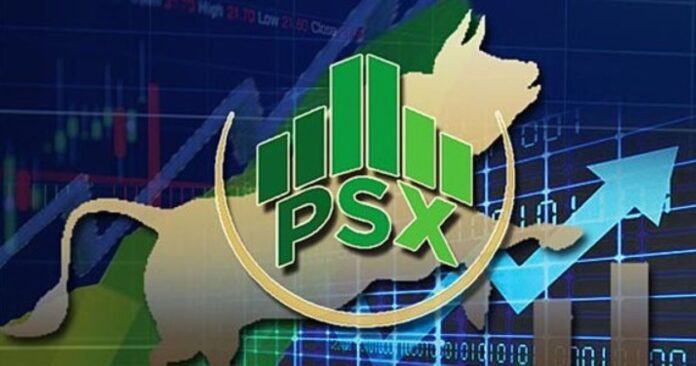The Pakistan Stock Exchange (PSX) has experienced a notable surge as investors eagerly anticipate the upcoming monetary policy announcement by the State Bank of Pakistan (SBP). The KSE-100 index, the benchmark for the PSX, is currently trading at 92,016 points, reflecting an increase of more than 1,100 points from its previous closing value of 90,859 points. This substantial boost is primarily attributed to speculation about a potential policy rate cut during the forthcoming Monetary Policy Committee (MPC) meeting.
Market Optimism Amid Policy Expectations
Investor sentiment in the PSX has been buoyed by hopes that the SBP will announce a reduction in the policy rate, a move that could provide much-needed stimulus to economic activity. Market analysts point out that a cut in the interest rate would alleviate the cost of borrowing, making it more attractive for businesses and investors to seek financing, thereby stimulating growth in key economic sectors. The anticipation of a policy shift has injected optimism into the stock market, attracting a surge in buying activity that has contributed to the recent rally.
US Dollar and Exchange Rate Movements
Amid the bullish trend in the stock market, the Pakistani rupee has experienced a slight depreciation against the US dollar. The exchange rate currently stands at Rs277.77 per dollar, marking an increase of Rs0.07 from the previous rate. The continued pressure on the rupee is reflective of broader macroeconomic challenges, including inflation and external debt obligations, that continue to exert strain on the currency.
Calls for Economic Reforms and Interest Rate Reductions
Amid these developments, prominent business leaders have urged the government to adopt more aggressive measures to support economic stability and growth. Former federal minister Gohar Ejaz has called for an immediate reduction in the interest rate to 12.5%, with a further target of bringing it down to 5% by the end of 2024. Speaking at the Federation of Pakistan Chambers of Commerce and Industry (FPCCI) Regional Office, Ejaz stressed the importance of comprehensive economic reforms to revive the industrial sector and stimulate investment.
Ejaz emphasized that the high-interest environment is unsustainable for industrial growth. He described the current state of the industrial sector as dire, warning that “factories are turning into graveyards” due to prohibitive operational costs and dwindling productivity. He noted that while neighboring countries have successfully maintained their interest rates in single digits to foster economic growth, Pakistan’s high rates continue to stifle its industrial potential.
The Need for an Industrial Support Package
Ejaz also highlighted the urgent need for a special winter package aimed at reducing electricity tariffs for industrial users to Rs20 per unit. Such a measure, he argued, would significantly lower production costs and enhance the competitiveness of Pakistani goods in international markets. “Maintaining the status quo will only exacerbate economic stagnation,” he cautioned, adding that failing to act could result in a ripple effect that would damage not only the manufacturing and agricultural sectors but also the service industry.
Strengthening Export Growth
To bolster long-term economic stability, Ejaz proposed setting an ambitious but achievable goal of increasing exports by 10% annually. According to his projections, this trajectory would position Pakistan to achieve $50 billion in exports over the next five years. Such growth would not only bring in vital foreign exchange but also help stabilize the rupee and support broader economic development.
Building Confidence Through Policy Involvement
Former provincial minister SM Tanveer joined Ejaz in emphasizing the role of the business community in economic decision-making. Tanveer argued that the government must include FPCCI and other business bodies in the policy-making process to ensure that policies reflect the needs and realities of the industrial sector. “Consultation with business leaders is crucial if Pakistan is to become an economic powerhouse,” Tanveer remarked. He called for transparent and consistent policies that would restore confidence in the government’s commitment to fostering a conducive environment for business growth.
Regional Chairman Zaki Ijaz also underscored the importance of prioritizing the industrial sector, noting that targeted policies are needed to drive industrial activity and combat rising unemployment. He called on the government to recognize the critical role of industry in generating jobs and economic output, advocating for strategic measures that would stimulate production and mitigate economic challenges.
Conclusion
The recent surge in the PSX underscores a sense of cautious optimism as stakeholders await the SBP’s policy announcement. However, the call for immediate interest rate cuts, economic reforms, and special industrial support packages reflects the broader challenges facing Pakistan’s economy. Leaders from various sectors stress that comprehensive and inclusive policy measures are crucial for sustainable growth and industrial revival.


